 Like most parents, I have resolved to be the best parent I can be. And for me, that means integrating proven best practices as I come across them, incorporating them into my parenting toolbelt.
Like most parents, I have resolved to be the best parent I can be. And for me, that means integrating proven best practices as I come across them, incorporating them into my parenting toolbelt.
The end of the year is a time when many of us start looking to the future, reflecting on the positive changes we’d like to make in our lives. In the spirit of New Year’s, I’ve consolidated my top parenting resolutions here.
1. To love unconditionally.
Most western parents today were raised using a model where we were given or withheld love based on our behavior. Our desired behavior was rewarded and undesirable behavior, punished. While this type of reinforcement is effective with animals, with whom these techniques originated, they also send our children strong messages that shape their self image and self esteem. Love is contingent upon children satisfying our expectations, we communicate.
On the contrary, when children are given unconditional approval, which can be expressed through the absence of praise and punishment, they learn that – at their core – they are loved. Conversations about acceptable behavior can take place without communicating to a child that they are “good” or bad”.
2. To validate emotions and experience.
Little children experience big feelings. If adults can be overwhelmed by strong emotion, imagine the experience of a child who has no coping tools and very little power.
We can help children move through the turbulence of emotion by naming and validating their emotions. By making their emotions both relatable and acceptable, we give our children a safe space within which to grow. “You’re feeling angry because Johnny took the ball away from you,” we might say after witnessing our toddler’s rage. Offering to hold your child or speaking together to Johnny about the incident may help the child work through their feelings.
3. To instruct using positive language.
As newbies to our world, children have tons to learn about appropriate social behavior. The word “no” in isolation is minimally instructive, as it provides no actionable information about what is desirable. Spoken over and over to a baby or toddler – or teenager for that matter – it can evoke strong frustration.
Practical information about what is acceptable maximizes support while minimizing frustration. “Food is for eating, balls are for throwing,” can be a helpful response to a child who throws his food. While challenging at first, aspiring to reduce or eliminate the use of the word “no” can be a powerful tool for parents. A child’s boundaries can be set even more powerfully when the realm of acceptable behavior is clearly defined.
4. To model what I wish to elicit.
Children learn by watching what we do, not by listening to what we say. While it’s tempting to demand respect from our children, one of the most productive – and fulfilling – ways to elicit respect is by extending it to them. Using polite language like please and thank you, responding to their requests with love and understanding – especially when they can’t be granted – and providing a safe space for them to create and make mistakes all send powerful messages about love. When we honor our children as separate beings with equally valid preferences – keeping in mind that it’s our responsibility in advance to limit their options to those that are supportive of their healthful development – we create a mutually respectful relationship.
5. To assume the best of intentions.
Have you ever noticed how the world rises to our expectations? Expect to have a bad day, and you’ll notice the frustration of hitting an empty tank of gas. Expect to have a good day, and you’ll pay special attention when that lady lets you go ahead at the supermarket.
Children are extremely responsive to our moods and expectations. We can avoid some huge potholes by refraining from labeling our children, i.e. “she’s the smart one” or “he’s the aggressive one”. We can also do our children a huge service by assuming that they have the best of intentions. Your child wants a strong relationship with you, filled with love, affection and mutual respect. And as long as you assume the best, even when he’s pulling the cat by her tail and throwing rice across the room, you can educate and nurture in a way that preserves a loving relationship. Remember, we’re all students here. And perhaps never more so than as parents.
6. To learn from my child.
Children come into the world with a lack of inhibition that is tremendously instructive. They show no shame in asking for what they desire, and they act instantly upon their most primal instincts to meet their needs. Ever notice how young children will suddenly start running around, or singing at the top of their lungs?
While most adults have learned to repress their desires, children are in touch with their basic needs – food, love, and exercise. When your child demands attention, take a cuddle break and relish the opportunity to love and be loved. When your child declares a dance party or initiates a wrestling match, join in! These feel-good games raise your heart rate and release your natural joy. What could be better?
7. To be present.
So often, we get caught up in our thoughts or to-do lists. While we can experience a sense of temporary relief or satisfaction by making progress on standing projects, the high only goes so far. Children live the grace-filled experience of being in the moment, each and every moment. By letting our agendas go and allowing a child to draw us into his world, we experience the aliveness of living in the present moment. While we’re giving the child a gift by attentively joining his game, that gift returns to us tenfold in each moment that we’re consciously present.
This year and every year, above all, I aspire to embrace the gifts that parenthood and life have to offer. I wish the same for you, in 2013 and beyond.

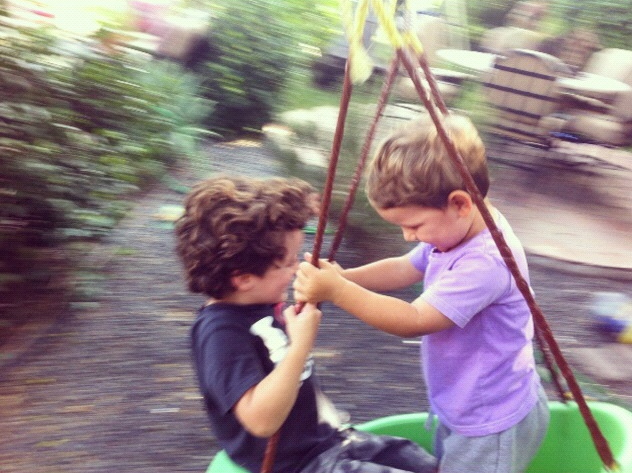



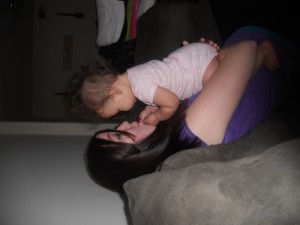
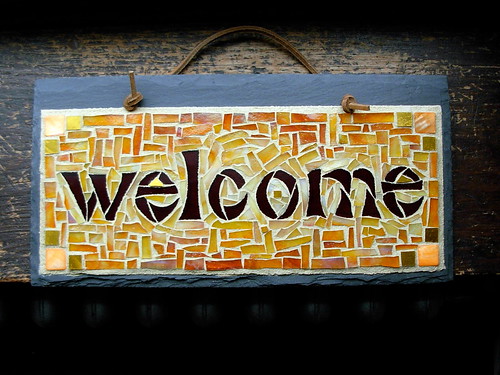
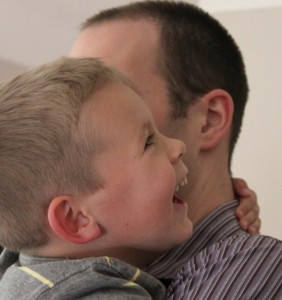

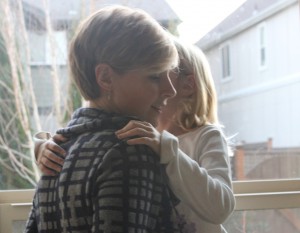
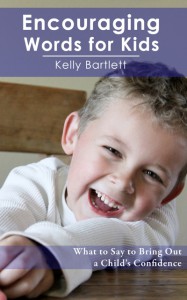 Remember that by opting for encouragement over praise, you’re not ignoring your kids’ accomplishments or successes. Encouragement is simply about keeping your response focused on their efforts and feelings as opposed to only the outcomes. Encouraging words not only reassure kids during times of success (“Wow, that took a lot of concentration!”), but also in times of disappointment (“I have faith in you to fix this mistake.”). Instead of looking to a parent for affirmation, kids are able to decide how they feel about themselves. Their failures and successes, as they should be, are about them, not anyone else.
Remember that by opting for encouragement over praise, you’re not ignoring your kids’ accomplishments or successes. Encouragement is simply about keeping your response focused on their efforts and feelings as opposed to only the outcomes. Encouraging words not only reassure kids during times of success (“Wow, that took a lot of concentration!”), but also in times of disappointment (“I have faith in you to fix this mistake.”). Instead of looking to a parent for affirmation, kids are able to decide how they feel about themselves. Their failures and successes, as they should be, are about them, not anyone else.